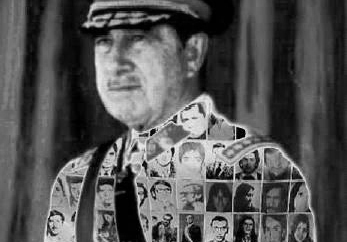Today, the ICJ made the following statement concerning the arrest in London, and subsequent detention, of the former dictator of Chile, General Augusto Pinochet Ugarte.
The ICJ wholeheartedly welcomes the arrest and detention of Mr. Pinochet and the possibility that he may have to face criminal proceedings. This turn of events constitutes a severe blow against the solid edifice of impunity which protects those who have committed gross violations of human rights.
Impunity represents an obstacle to the enjoyment of human rights and allows authors of gross violations of human rights to escape from justice. Impunity is a gangrene that corrodes the very core of our societies. It constitutes an affront to justice and affects equality under the law. The opposite of impunity is justice – and that is what seems to have prevailed with the arrest of Pinochet.
It seems that, since 1973, former General Pinochet, who is today a Senator-for-life in Chile, has accumulated more than enough reasons that would warrant his having to face trial in a criminal court. The court could investigate his acts and hand down a sentence in accordance with the law, taking into account his role as commander in chief of the Chilean army, as President of Chile, and as head of the DINA (the Chilean intelligence service), an organ that undertook illegitimate political repression. The actions of the DINA, which functioned directly under the orders of Pinochet were not limited by the borders of Chile, but extended to other countries, as for example the assassinations of the former Chancellor of Chile, Mr. Orlando Letellier in Washington D.C., and of the former Head of the Army of Chile, General Carlos Prats, in Argentina.
The ICJ will observe with great interest the path followed by England’s system of justice, recalling that the United Kingdom has the right and the jurisdiction to prosecute suspects such as Mr. Pinochet when they find themselves within the territory of the UK. International treaties as well as customary international law on human rights allow and even place a duty on States to do so, in cases of mass assassination of detained persons, enforced disappearances, extrajudicial or arbitrary executions, torture of detainees and hostage taking. Such acts constitute crimes against humanity having the abovementioned legal consequences.
According to hundreds of corroborating testimonies – and also according to his own words – the former General is directly implicated in such crimes against humanity. On this basis and whilst in London, the English judicial system could initiate proceedings against him. In cases of particularly serious crimes, what is known in international law as “universal jurisdiction” applies. This provides that a perpetrator can be brought to justice not only in the State in which a crime was committed, but also before the jurisdiction of any other State in which the alleged perpetrator happens to be.
The British authorities also have the option to extradite the suspect to another jurisdiction should any other State claim this right. Two judges in Spain have asked the English judicial system to provisionally order the detention of Mr. Pinochet for the requirements of their own investigation, pending possible extradition. The legal basis and arguments of the Spanish judges will be known in the coming days. In any case, the English legal system has acted within the set legal framework. However, should doubts emerge concerning the extradition of Pinochet to Spain, then he can be brought before English courts.
The ICJ considers that, although Mr. Pinochet was travelling with a diplomatic passport delivered by Chilean authorities by virtue of his being a Senator-for-life, this cannot prevent him from being prosecuted and possibly sentenced for crimes against humanity – if proven guilty. The transition of Chile to democracy constitutes a huge step forward for that country and its people, even though the process has been limited by the pervasive influence of the armed forces and by Mr. Pinochet himself as Commander in Chief. The army was the leading force behind the self-attribution of amnesty in 1978 for all military personnel. It is also due to their control of the transition period that the military were able to include into the constitution the institution of senators-for-life who are granted diplomatic passports for travelling. These all amount to unilateral actions, imposed by the military upon democratic Chile, which are irrelevant under international law. In any case, the alleged diplomatic immunity of Mr. Pinochet could not prevent a criminal procedure from being instituted against him, as an alleged perpetrator of crimes against humanity.
It is precisely cases such as that of Mr. Pinochet, as well as the impunity which has been granted to such perpetrators of human rights violations, which have led the international community of States to establish, in July 1998, a permanent International Criminal Court.
The ICJ takes this opportunity to call on all States to take this case as a model and bring all alleged perpetrators of gross violations of human rights and grave breaches of international humanitarian law before their national courts, thus exercising the principle of universal jurisdiction.





